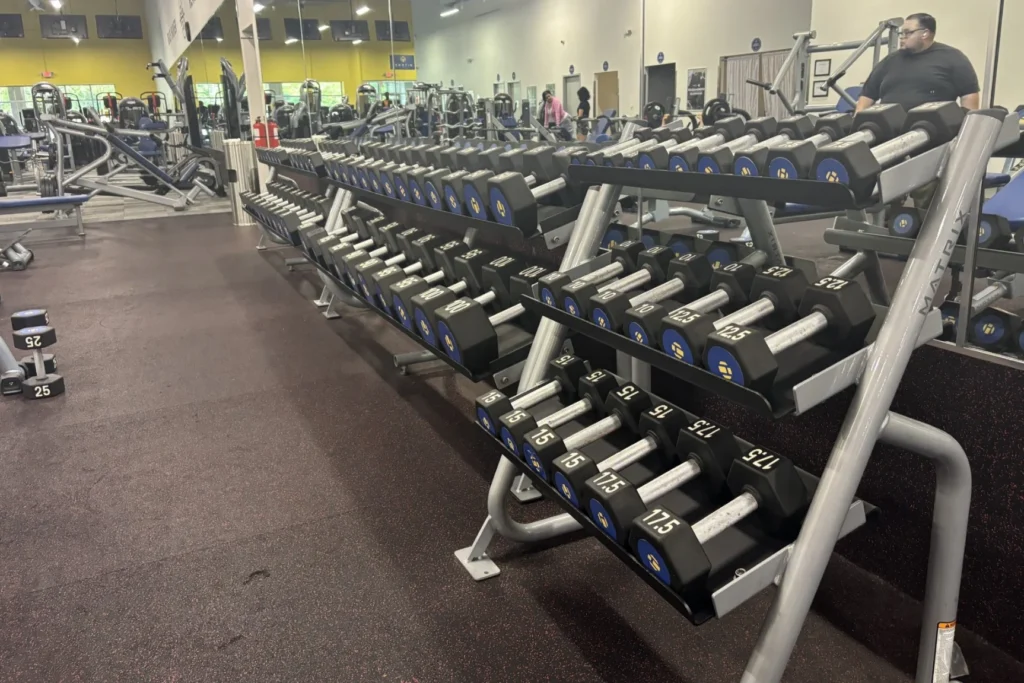Deciding whether to lift heavy or light weights to lose weight involves understanding how different types of strength training can affect your body. Both heavy and light weightlifting can contribute to weight loss, but they do so in different ways. Here’s an overview to help you decide which might be more effective for your weight loss goals.
Benefits of lifting heavy weights
Lifting heavy weights typically involves fewer repetitions with larger amounts of weight. This style of training is primarily aimed at increasing strength and muscle mass.
How it helps with weight loss
- Increased muscle mass: More muscle mass significantly boosts your metabolic rate, meaning you burn more calories at rest.
- Higher EPOC (Excess Post-exercise Oxygen Consumption): Heavy lifting can lead to a higher EPOC, so your body continues to burn calories at an elevated rate even after you’ve finished exercising.
- Hormonal benefits: Lifting heavy weights can increase the production of hormones that aid in fat loss, including growth hormone and testosterone.
Benefits of lifting light weights
Lifting lighter weights typically involves doing more repetitions with lighter weights. This type of training is often aimed at building muscular endurance and toning muscles.
How it helps with weight loss
- Increased caloric burn during exercise: Although the post-exercise calorie burn might not be as high as with heavy lifting, the total calories burned during a light weightlifting session can be substantial, especially if the rest periods are short.
- Accessibility and consistency: Lighter weights reduce the risk of injury and can be easier for beginners to handle, which may lead to more consistent training – a key factor in long-term weight loss.
- Fatigue management: Lighter weights allow you to perform more repetitions, which can lead to muscular fatigue that stimulates metabolic adaptations conducive to weight loss.
You can also combine light weights exercise with cardio like running. Before you do, learn if running before or after lifting weights works for you.
Which is better for weight loss?
The choice between lifting heavy or light weights should be based on your personal fitness level, preferences, and specific weight loss goals.
Considerations
- Personal preference: The best weightlifting regime for weight loss is one that you can perform consistently and sustainably. Choose the method that you enjoy more and can adhere to over the long term.
- Current fitness level: If you’re new to weightlifting, starting with lighter weights can help you develop proper form and avoid injuries. As you progress, you can start incorporating heavier weights.
- Overall fitness strategy: Ideally, a combination of both heavy and light lifting can be effective for weight loss. This approach allows you to benefit from both increased muscle mass (boosting metabolic rate) and higher calorie burn during workouts.
If you need a personal trainer who will provide personalized advice, then get connected with trainers at HiTone Fitness Fayetteville.
Final thoughts
Both heavy and light weightlifting have their place in a weight loss regimen. Lifting heavy weights is effective for building muscle and increasing resting metabolic rate while lifting light weights can help you burn more calories during workouts and maintain consistency. A mixed approach that includes both heavy and light training sessions might provide the best balance for comprehensive fitness and effective weight loss.





